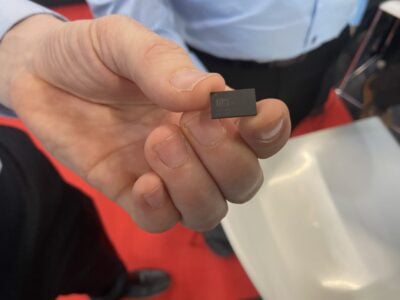
£85m for UK electric aircraft projects
Three UK projects developing hydrogen technologies for electric aircraft have been backed with £85m (€96m). Half the funding comes from the UK government’s ATI programme and matched by industry.
GKN Aerospace-led project H2GEAR will receive a £27.2m grant over five years to develop a liquid hydrogen propulsion system for regional air travel, which could be scaled up for larger aircraft and longer journeys.
ZeroAvia’s HyFlyer II will receive a £12.3m grant to scale up its zero-emissions engines for demonstration on a 19-seater aircraft, showcasing its significant technological advances, meaning that customers can expect to fly on zero-emissions aircraft as early as the end of 2023.
“Working with our partners, and made possible by UK government investment, GKN Aerospace will develop and industrialise the breakthrough technology that will enable aircraft to fly with zero CO2 emissions from the mid-2020s. This will not only create thousands of jobs, but it will keep the UK at the forefront of the next generation of cleaner air travel for decades to come.
“The government’s backing for our 19-seat hydrogen-electric powertrain development programme will deliver a market-ready hydrogen powered solution for 2023 that makes passenger-ready zero carbon aviation a reality,” said Val Miftakhov, Founder and Chief Executive Officer of ZeroAvia.
InCEPTion, led by Blue Bear Systems Research, is receiving a £2.8 million government grant to develop a fully-electrified zero-emissions propulsion capable of powering a range of electric aircraft including unmanned drones and passenger aircraft. The InCEPTion (Integrated Flight Control, Energy Storage and Propulsion Technologies for Electric Aircraft) project would enable a broad range of new mobility services across the UK, from large cargo delivery to regional commuting.
The project includes Drive System Design, Ricardo, materials specialists, M&I Materials and the University of Cambridge’s Whittle Laboratory as well as the University of Salford’s Acoustics Research Centre.
“We are combining the best from aerospace and automotive sectors to create a next generation product using ‘more digital’ systems engineering practices,” said Dr. Yoge Patel, Chief Executive Officer of Blue Bear Systems Research.
“This multi-million-pound boost will help to secure up to 4,750 jobs in these projects spanning the UK, and could pave the way to technological advances that will allow the industry to build back better and greener following the COVID-19 pandemic – and help tackle climate change,” said Paul Scully, UK minister for business.
The UK government also awards aerospace funding through the Future Flight Challenge, which in total will award £125m of government grants, matched by industry, to companies investing in future aviation systems and vehicle technologies, enabling new classes of electric aircraft or autonomous drones.
H2GEAR will be delivered in collaboration with partners from GKN Aerospace’s Global Technology Centre in Filton, Bristol.
For ZeroAvia, the funding will enable the consortium with Aeristech and the European Marine Energy Centre to scale up its hydrogen technology and showcase the technology in various test flights, including a world-first long-distance zero-emissions demonstration flight of this size and power level in January 2023. It will also enable ZeroAvia to enter the formal certification process at the end of the project, so that customers can expect to fly on zero emissions aircraft as early as the end of 2023.
“Today’s announcement shows how the Aerospace Technology Institute (ATI) through its long-term funding is stimulating research in technologies to deliver future zero-emission flight,” said Gary Elliott, Chief Executive of the Aerospace Technology Institute, said:
“Hydrogen-powered electric aircraft offer a clear route to keep the world connected, with dramatically cleaner skies. The UK is at the forefront of this technology, and the H2GEAR project is an example of industry, academia and government collaboration at its best,” said Russ Dunn, Chief Technology Officer for GKN Aerospace
www.zeroavia.com; www.bbsr.co.uk
Related electric aircraft articles
- UK PLAN FOR COMMERCIAL HYDROGEN AIRCRAFT BY 2023
- UK SEES FIRST ELECTRIC PASSENGER AIRCRAFT FLIGHT
- HYDROGEN AIRCRAFT STARTUP RAISES £2.7M FOR UK OPERATION
Other articles on eeNews Power
- The startup aiming to get Elon Musk’s attention
- 1980: a pivotal point in the power industry
- New CEO at Traco Power
- Amber raises $8.5m for solid state power
- Optical cable supports 60W USB-C power
- Study develops physics model for GaN reliability
 If you enjoyed this article, you will like the following ones: don't miss them by subscribing to :
eeNews on Google News
If you enjoyed this article, you will like the following ones: don't miss them by subscribing to :
eeNews on Google News




